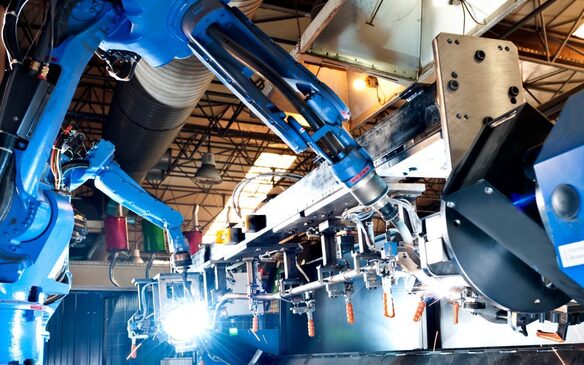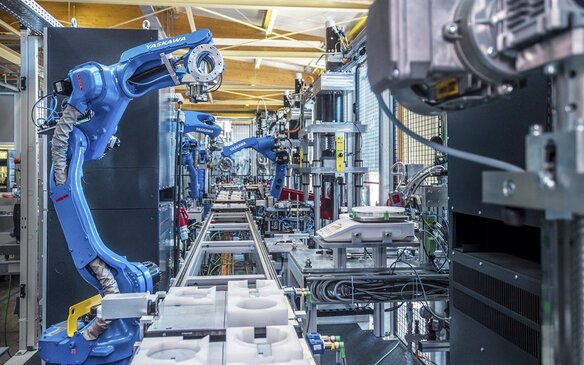
AMRs y AGVs: Una Comparación Integral
21 de septiembre de 2023
Tendencias Electromecánicas en la Industria Automotriz
21 de septiembre de 2023The automotive industry is in constant evolution, driven by technological advancements and a growing demand for more efficient and safer vehicles. In this context, the adoption of 4.0 and 5.0 technologies has become a fundamental pillar for the competitiveness and growth of automotive companies. In this article, we will explore the key trends in this field and their impact on the industry.
Challenges and Opportunities
As modern manufacturing has reached impressive levels of efficiency, companies are facing increasingly complex challenges. The need to produce goods more quickly, with greater safety, quality, and lower cost, is a constant in the industry, even for automotive leaders. Failure to adapt to Industry 4.0 operations can result in diminishing returns.
Competition in the automotive industry is fierce, and companies are constantly seeking ways to stand out. This article will examine the latest manufacturing trends in the automotive sector and how they are transforming the industry.
With so much competition to be the biggest, the best, and to reach more end consumers, what exactly are modern companies implementing?
Overview
While automotive companies are not the only ones investing in robotics, automation, IoT, and data analytics, they often pioneer the early adoption of disruptive technologies. The numbers support this trend. According to a recent report from the Capgemini Research Institute, 98% of the leading automotive manufacturers with revenues exceeding one billion dollars are advancing in their smart factory initiatives. Nearly half of them (48%) have made significant progress in their goals, a 10% increase from the previous year.
While 48% may not seem remarkable on its own, the report predicts a 60% increase in cumulative investments by 2023 in areas such as cloud computing, 5G networks, virtual assembly technologies, autonomous industrial equipment, collaborative robots (cobots), drones, and additive manufacturing. While these technologies and figures may not directly impact end consumers, automakers expect these investments to generate approximately $160 billion in annual productivity gains, which will influence costs and product quality.
Key Technologies
The crucial technologies that will drive the adoption of smart factories in the automotive industry include:
- IIoT (Industrial Internet of Things): While IoT is common in everyday life, industrial IoT is more complex, requiring the interconnection of numerous sensors and devices regardless of their location. IoT connectivity is essential for data collection and process optimization. However, only 20% of automotive manufacturers believe in the scalability of IoT, even though about a third believe it offers significant benefits.
- Private 5G Networks: The promise of significantly improved speeds and reduced latency compared to previous network generations makes private 5G networks indispensable for the digital transformation of an automaker.
- Convergence of Information Technology and Operational Technology (IT-OT): Seamless integration between information technology and operational technology is crucial for the success of a smart factory. Connectivity of systems, from design to production, is essential. However, less than 40% of companies have established the necessary modeling for this synchronization. Interestingly, only about 30% have a clear view of the data flows and processes required for synchronization.
Examples of Industry Leaders
As in any field, some companies stand out for their adoption of cutting-edge technologies:
- Mercedes-Benz: Known for its quality and precision, this Germany-based automaker uses advanced technology to virtually simulate the entire production process, including over 4,000 distinct processes. The use of machine learning and data analytics to create self-learning and self-optimizing production systems sets it apart.
- BMW: Another German automaker, BMW, plans to expand and make significant investments in its largest automated facility in the United States, with an estimated expenditure of $1.6 billion.
- Audi: Like BMW, Audi is investing $1.3 billion to build a smart factory in Mexico.
- Harley-Davidson: This iconic brand managed to reduce its 21-day production cycle to just six hours through the implementation of suitable technologies and process optimization.




